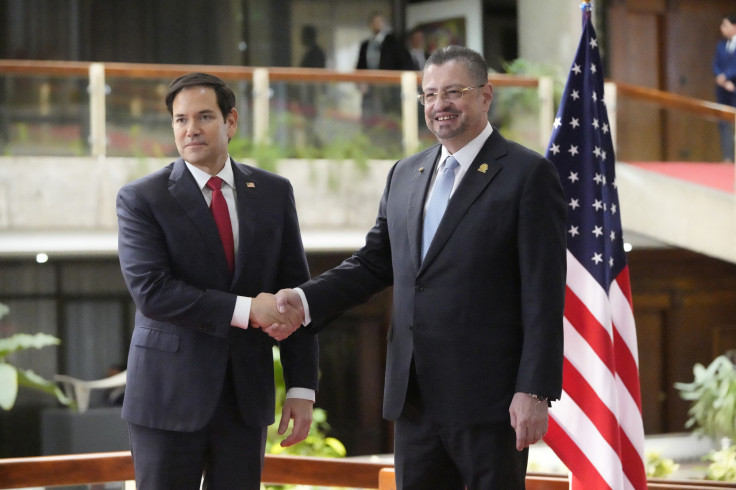
Costa Rica is set to become the latest country to receive U.S. deported migrants from third countries. The deportees will be sent to the Central American country as early as Wednesday, according to The New York Times. They hail from Central Asia and India deported from the United States
The announcement comes shortly after Marco Rubio's visited the Central American country as U.S. Secretary of State. In a joint press conference with Costa Rican president Rodrigo Chaves, Rubio described the country as a "pro-American government" and a "very good partner." Chaves echoed the remarks, saying his government would work to make their partnership "even stronger."
Panama was the first nation in Central America to accept U.S. deportees from third countries. As of last week, the country had already received three U.S. deportation flights carrying migrants from countries in Asia, the Middle East, and Africa.
As the Trump administration's immigration crackdown unfolds, detention space has already proved to be a challenge, as immigration experts predicted before Trump arrived at the White House. In early February, CBS News reported that Immigration and Customs Enforcement (ICE) had already exceeded capacity in its detention centers. Around 400 nonviolent immigrants had to be released due to lack of space, making partnerships with safe third countries such as Costa Rica, Panama, and El Salvador a strategic move to increase domestic detention capacity, as well as a way to remove deportees from countries that are reluctant to take back their nationals.
The migrants being sent to Costa Rica are mostly from countries for which repatriations might take longer to process. According to The New York Times, they will be sheltered in a facility in the canton of Corredores. Although it is not clear how long deportees will have to wait before being repatriated, the Costa Rican government confirmed that it intended to "serve as a bridge" for them to return to their countries of origin.
Additionally, the Central American country announced that the repatriation process would be fully funded by the U.S. government and supervised by a United Nations agency called the International Organization for Migration.
During his visit to Costa Rica, Rubio announced he would be issuing a waiver to exempt the country from USAID's 90-day freeze. "In Costa Rica, we have a trusted partner and an ally who has proven that they have taken aid from the United States and used it to fix a problem, to help us, to do it in a way that actually helps the United States," Rubio said.
© 2025 Latin Times. All rights reserved. Do not reproduce without permission.





